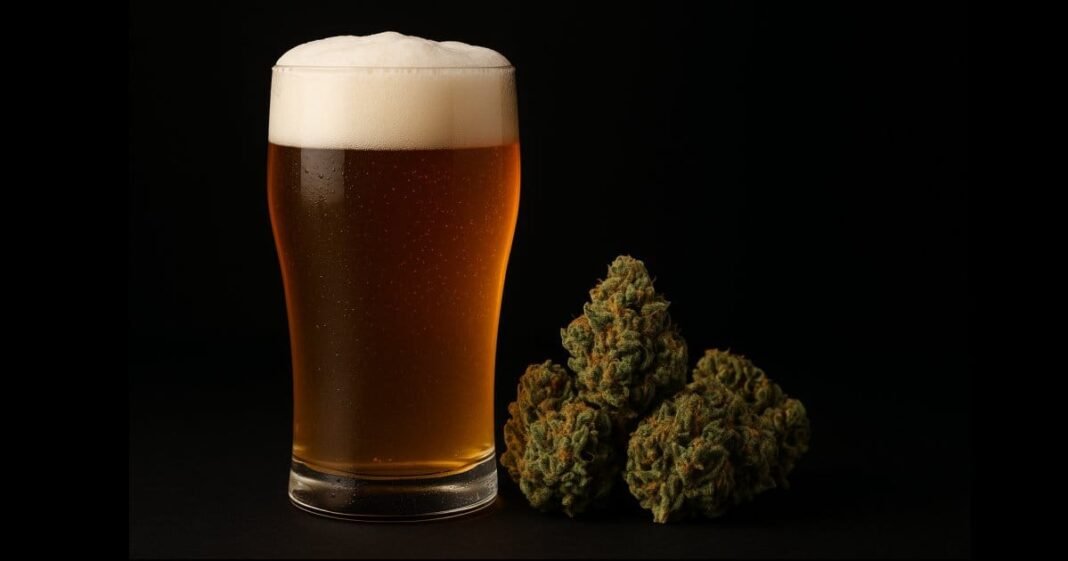In countries that have legalized marijuana, alcohol and cannabis use is on the rise. Does the co-consumption of alcohol and cannabis affect the consumption rate?
There have been conflicting results from studies examining this — some indicated cannabis co-use is associated with reductions in alcohol consumption, others an increase or no change at all.
Colorado State University researchers and University of Colorado scientists set out on a mission to reach their own conclusions by investigating in a lab setting the effects of the legal cannabis market on the consumption of alcohol. They claimed that this was the very first study of the type.
The 61 subjects completed 2 laboratory sessions, where an “initiating” alcohol drink was given either on its own or following self-administration. The participants could self-administer an additional four drinks. Researchers found that cannabis self-administration is associated with significant decreases in the number of drinks consumed afterward. In addition, the researchers found that those who consumed less alcohol after cannabis use (23 participants), had fewer cravings than alcohol-only users.
After cannabis consumption, no differences were found in the blood THC levels between groups.
Researchers state that:
The results indicate that cannabis could be used as an alternative to alcohol for those who consume large amounts of alcohol. Craving reduction may also play a role in this.
Participants must meet certain criteria to be eligible.
- Between the ages of 21–60.
- Heavy drinking for at least 3 months, which was defined as > 4 drinks on any day or more than 14 drinks per week for men; more than 3 drinks on any day or more than 7 drinks per week for women.
- Regular cannabis flower use.
Study has been published Drug and Alcohol Dependence. National Institute of Alcohol Abuse and Alcoholism of National Institutes of Health supported the research.
Researchers have suggested that future research should examine additional contextual and individual factors which could be used as indicators to predict whether marijuana can act as an alcohol substitute.
In a Canadian study from 2020, involving many participants, 44% of those surveyed reported reducing their alcohol consumption over the past 30 days. 34% also reduced the amount they consume per week. In the 30-day period prior to the survey, 8% of respondents reported that they had not consumed any alcohol.




